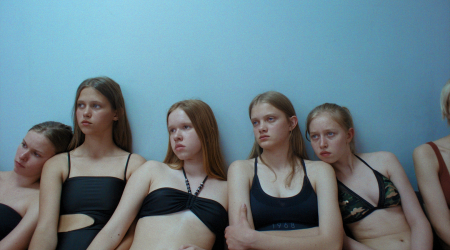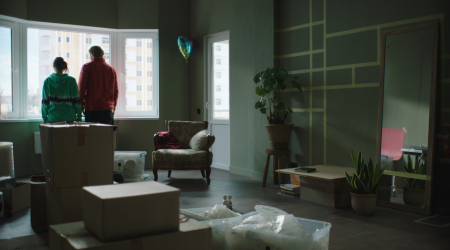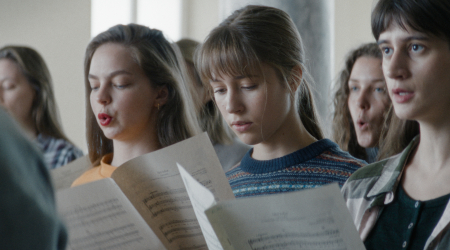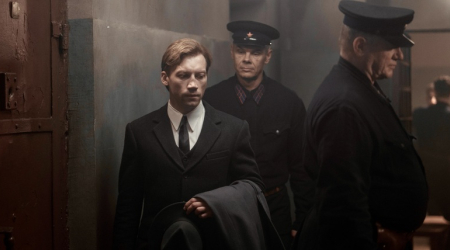Film reviews
Back to...Tapeworm pills, illegal tongue piercings and a sketchy modeling school. Toxic portrays girlhood in an unflinching way.

It’s so confusing sometimes to be a girl. The girl rivalry, as beautifully described in Charli XCX and Lorde’s remix song, becomes fully alive in this Lithuanian monster of a film. In the opening minutes of Toxic, it seems to be your typical bleak European bully film. But then it is not that. At all. The director Saulė Bliuvaitė shows us what could happen if you befriend your bully. And spoiler, it does not go well.
Winner of the Golden Leopard at the 2024 Locarno Film Festival, Bliuvaitė’s debut is a quietly devastating exploration of early-teen girlhood as it unfolds in post-industrial Lithuania, where abandoned buildings and social decay form both the backdrop and the emotional architecture of her characters’ lives. It is not a coming-of-age film in the traditional sense; but more like watching a survival story unfold in slow motion, under the guise of adolescence.
At the heart of the story are Marija (Vesta Matulytė), a physically disabled 13-year-old who has just moved in with her grandmother, and Kristina (Ieva Rupeikaitė), a feral, magnetic girl who has been seduced by the promises of a local modeling agency. Their relationship begins with cruelty (Kristina steals Marija’s only pair of jeans) but gradually warps into a kind of sisterhood forged through shared abandonment and impossible dreams.
What sets Toxic apart is its refusal to sentimentalize these girls or their suffering. Their world is not softened by adult insight or coming-of-age clichés. The camera, guided by cinematographer Vytautas Katkus, observes rather than intervenes. The aesthetic is sparse but precise, turning everyday objects and textures into emotional signifiers. This is kitchen-sink realism, but filtered through a lens that feels almost mythic in its restraint. It takes after Harmony Korine’s beloved Gummo, mixed with some of All About Lily Chou-Chou’s nostalgia.
One could wonder whether this film is exploitative to its young actors who have to go through harsh scenes. It is hard to say when the film is about exploitation itself. But Bliuvaitė seems to have her heart in the right place. You can almost hear the director’s rage in the background of every scene. The modeling subplot could have fallen into melodrama in another film but here, it is presented with disturbing casualness. The girls fast to lose weight, try tapeworm eggs, and allow their bodies to be viewed and touched by strangers. What’s horrific is how normalized it all is. Adults are either absent or complicit. The predators never need to raise their voices; the system does the work for them. Which makes you, as a viewer, all the more upset.
Both leads give remarkable performances, especially Vesta Matulytė, whose Marija is internalized and near-wordless, yet never passive. Her presence aches. Every shift in her gaze feels earned. Rupeikaitė’s Kristina is the flame to Marija’s ember. It is reckless and hungry, but never villainous. The film resists assigning heroes or victims. They are just girls, aching to be seen, aching to get out. It does not preach. It does not resolve. Instead, it captures something ephemeral and raw: the terrifying fragility of youth, where every promise of beauty or success carries its own form of violence.
In about 90 minutes, Bliuvaitė does what many seasoned directors never manage: she conjures a world so specific that it feels lived in. Dreamlike and nightmarish in equal measure. Toxic is not just a film. It is a wound on broad display.
by Klaas Mertens
Back to...-

Tapeworm pills, illegal tongue piercings and a sketchy modeling school. Toxic portrays girlhood in an unflinching way.
-

Медовий місяць (“Honeymoon”) / “You support the human right to be alive”
-

Review of LITTLE TROUBLE GIRLS
-

Two Prosecutors – Loznitsa's new film places Stalinist horrors between Kafka-like irony and Greek tragedy











